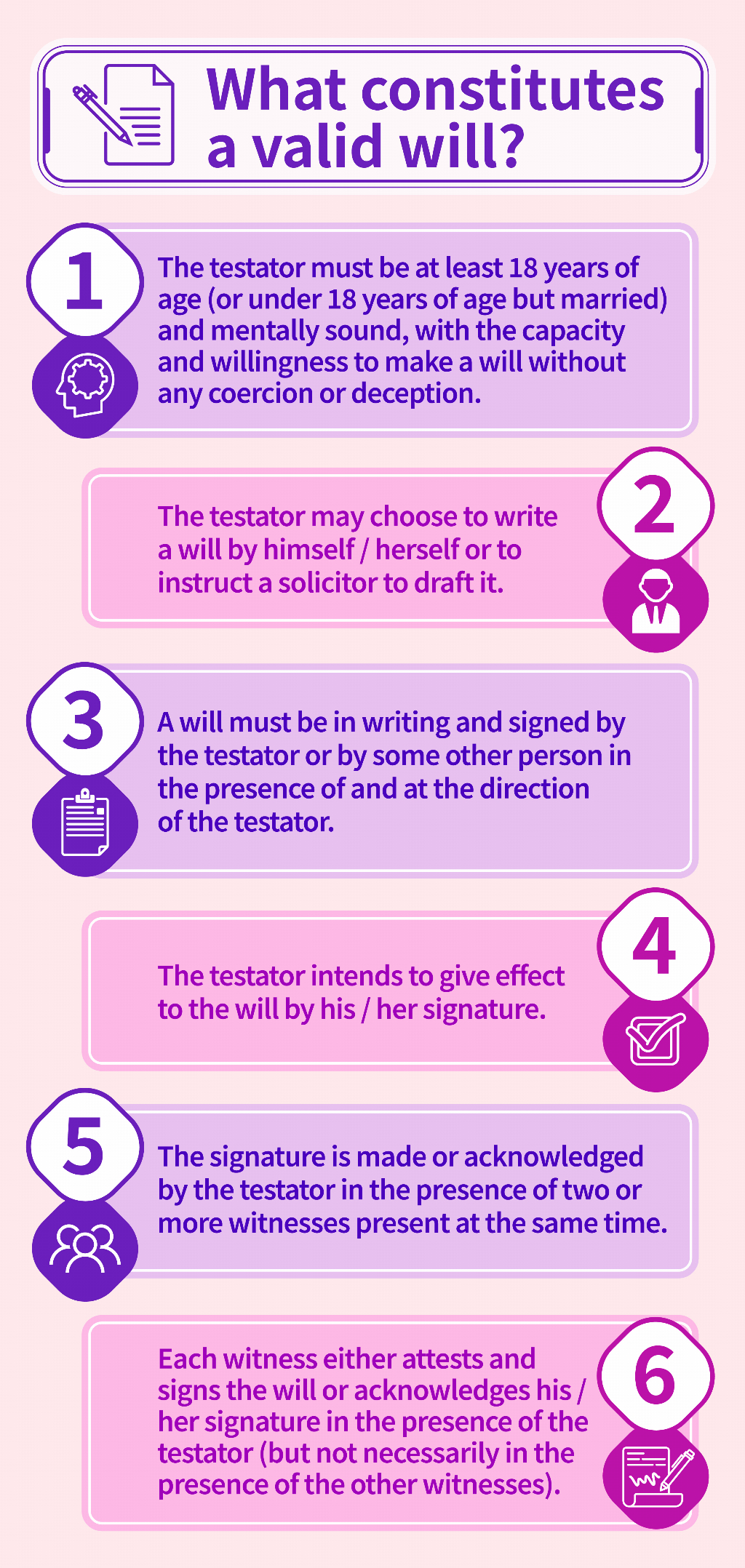The Importance of the Use of Wills

What is a will?
A will is a legal document that specifies the personal representative entrusted with the power and duty to administer a person’s estate (the executor) and to whom the deceased’s estate should be distributed upon his / her death (the beneficiaries). A will shall take effect immediately upon the death of the testator. The executors shall act in accordance with the will, administer the estate of the deceased person and distribute them to the beneficiaries.
What can be included in a will?
There is no limitation on what can be included in a will. It may include:
appointment of executors;
disposition of personal effect and property;
arrangements for beneficiaries when they are under the age of 18; and
The beneficiary’s share of estate should be held on trust
- The testator may specify the exact age at which the estates may be distributed to the beneficiary.
appointment of a guardian to take care of minor children (under the age of 18) or disabled persons.
Why making a will?

The importance and benefits of making a will include:
Distribution of the estate according to the testator’s own wishes and avoidance of disputes
Making a will ensures that the property and assets of the testator are distributed according to his / her wishes after his / her death, which prevents family disputes. Also, the testator may also distribute assets to non-relatives such as friends of the testator or charitable organisations by making a will.
Appointment of executors
There can be a maximum of 4 executors of a will. The testator can appoint trusted persons, such as legal professionals, to be the executors of the will. Executors are responsible for administering and distributing the property in the estate. This prevents disputes between family members and friends over applying to the court to be the executor of the will.
Simplify the process of estate administration
If a deceased did not leave a will, an application for Letter for Administration requires documents and evidence proving the entitlement of the applicant to administer the estate. For example, the renunciation of administration signed by the deceased’s relatives who have prior rights than the applicant to administer the deceased’s estate. If the deceased left a will, the executor who apply for the Probate is not required to obtain the aforesaid renunciation.
Order of Priority in Intestate Succession

In general, the estate of an intestate shall be distributed, in accordance with the Intestates' Estates Ordinance, in the following order:
- surviving spouse;
- surviving child (including illegitimate child and adopted child, but excluding stepchild) or issue of deceased child;
- surviving parent(s);
- surviving brother(s) or sister(s) or the issue of deceased sibling(s);
- surviving grandparent(s);
- surviving brother(s) or sister(s) of the parents.
Seeking Legal Advice
For legal advice relating to the making of wills or the administration of estates, member of the public may consult his/her own legal advisor or attend any of the designated appropriate referral agency to make an appointment to meet the volunteer lawyer of the Free Legal Advice Scheme, or visit the website of the Duty Lawyer Service for recorded legal information on the relevant legal topics.
Sources: Department of Justice, The Duty Lawyer Service